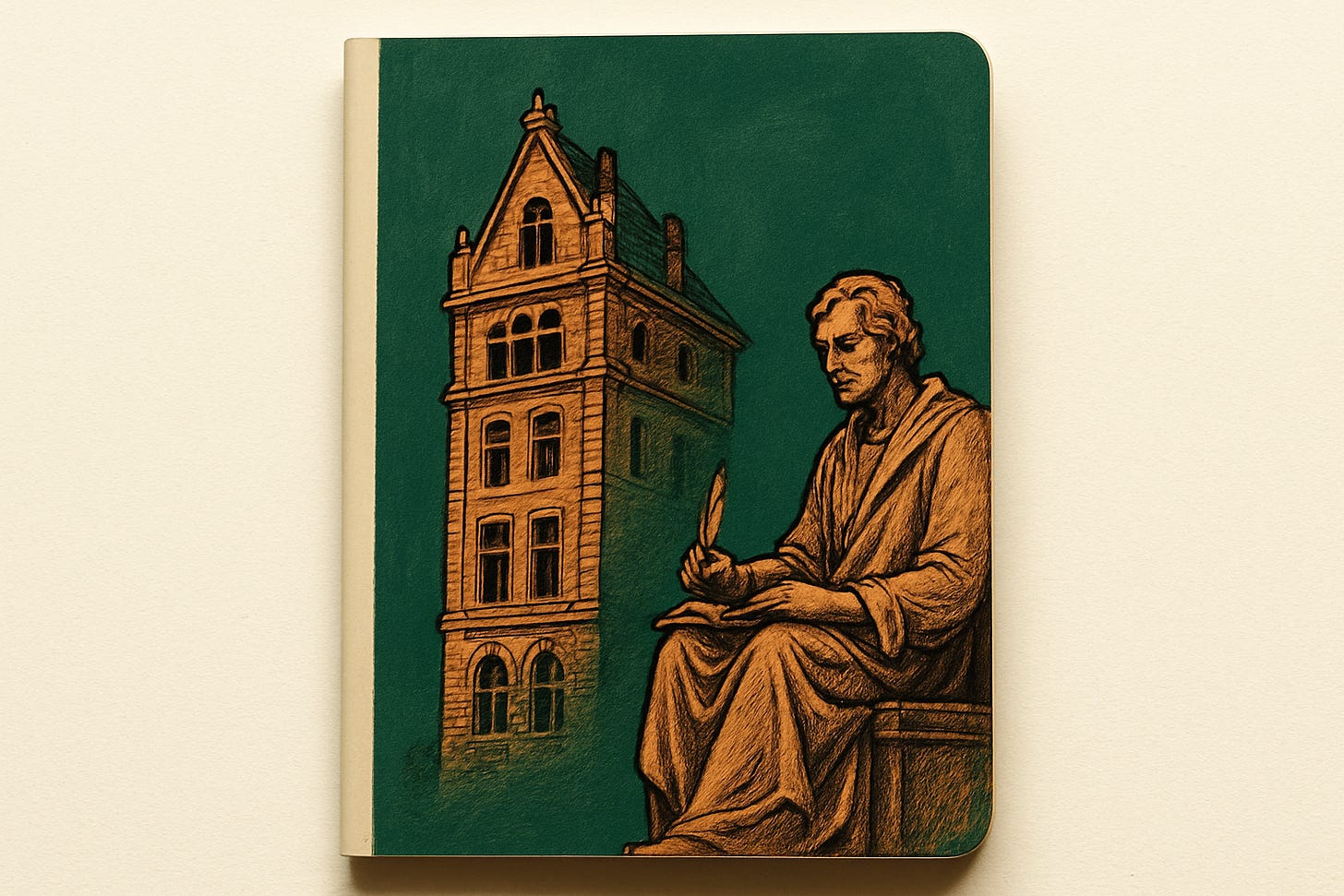For one thing, my sanity is at stake.
Her secret wasn’t superhuman discipline; it was boundaries.
A few months ago, I was having coffee with a friend who works in the finance industry. He looked exhausted, his tie hanging loosely, his eyes dim with sleeplessness.
When I asked him why he kept pushing himself through seventy-hour work weeks, he smiled weakly and said, “Because if I don’t, someone else will take my place.” I pressed further: what about his health? His relationships? His happiness? He shrugged, as if these were luxuries he couldn’t afford. Then, almost in a whisper, he admitted: “Sometimes I wonder if I’m losing my mind.”
That conversation haunted me. It struck me how easily we can barter away our sanity for the sake of ambition, duty, or even appearances. We tell ourselves we’re doing it for success, or for the family, or for the future. But if we lose our minds in the process, what have we really gained?
I have come close to that edge myself.
There were seasons when I overloaded my calendar, saying yes to everything: work projects, volunteer roles, and social commitments.
On paper, it looked impressive. In practice, it meant waking up at 4:30 am with my heart racing, wondering how I’d get through the week.
My notebooks were filled with to-do lists that multiplied like rabbits. Each ticked box gave me a fleeting sense of progress, followed immediately by the weight of everything left undone. The cycle was relentless.
One evening, while scrolling through my emails at midnight, I caught sight of my reflection in the dark laptop screen. My shoulders were hunched, my jaw clenched. I looked like someone preparing for battle, not someone living a life.
In that moment, I thought: for one thing, my sanity is at stake.
Sanity is rarely measured. Employers measure productivity. Banks measure savings. Social media measures likes. However, sanity, our ability to live with clarity, balance, and peace, is invisible, which makes it all the more dangerous to ignore until it collapses.
I once read in Viktor Frankl’s Man’s Search for Meaning that “between stimulus and response there is a space. In that space is our power to choose our response. In our response lies our growth and our freedom.”
To me, sanity lives in that space. When the space shrinks, when we are too rushed, too stressed, too consumed, we lose the ability to choose wisely. Life becomes automatic, reactive. We stop living and start merely coping.
I met a teacher once who seemed immune to this trap. She taught secondary school literature, a notoriously draining profession. Yet she radiated calm. Curious, I asked her how she managed to stay so composed.
She smiled and said, “Every evening, I close the book at the final bell. My students get me during the day, but my family gets me at night. I refuse to grade papers at the dinner table.”
Her secret wasn’t superhuman discipline; it was boundaries. She knew that her sanity was not a resource to be endlessly spent but something to be fiercely protected. That conversation taught me more than any productivity hack.
Still, many of us live by an unspoken formula:
If only I achieve X, then my mind will finally be at peace.
If only I get the promotion, then I’ll relax.
If only I save enough money, then I’ll sleep better.
If I could please everyone, then I would feel whole.
But sanity doesn’t work that way. Peace of mind isn’t a prize at the end of relentless striving; it’s the foundation without which the prize becomes meaningless.
As the Dalai Lama wrote: “We sacrifice our health to make money. Then we sacrifice money to recuperate our health. And then we are so anxious about the future that we do not enjoy the present.”
The wiser formula is this: Because my sanity is at stake, I must protect it before everything else.
What, then, protects sanity?
For me, it has been surprisingly ordinary things: taking long walks without headphones, enjoying slow dinners with friends, practising the discipline of closing my laptop before bed, saying a bedtime prayer, journaling, or going for a run.
The form matters less than the intention: to carve out moments where the world’s demands fall silent and the inner voice can breathe.
As Gabor Maté often reminds us, “The essence of trauma is disconnection from the self.”
Sanity, then, is the opposite: the steady, persistent practice of reconnecting with oneself.
Right now, as I write these words, my phone buzzes with notifications. Emails stack up, messages blink, headlines scream. All of them are invitations to scatter my mind. But I resist, for one thing, because my sanity is at stake.
Writing itself may not solve everything; it comes with its own frustrations and failures, but it grounds me. It reminds me that clarity is possible, even in the midst of chaos.
So here I am, at the desk, typing in imperfect prose.
The deadlines remain, the world continues to demand, and the inbox is far from empty. But at this moment, sanity is not deferred, not postponed, not waiting for some imagined future.
For one thing, my sanity is at stake. And for that reason, I choose, however imperfectly, to protect it now.
Thank you for reading. Your time and attention mean everything. This essay is free, but you can always buy me coffee or visit my shop to support my work. For more thoughts and short notes, please find me on Instagram.



